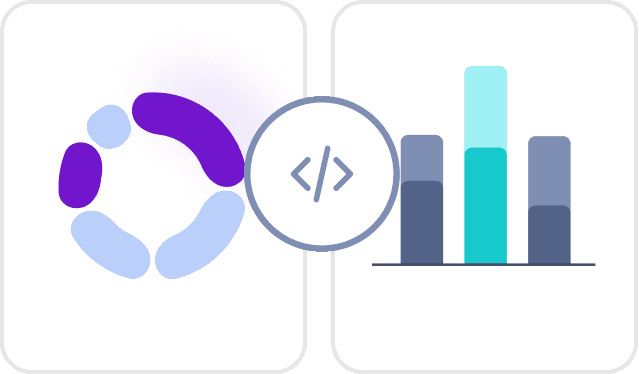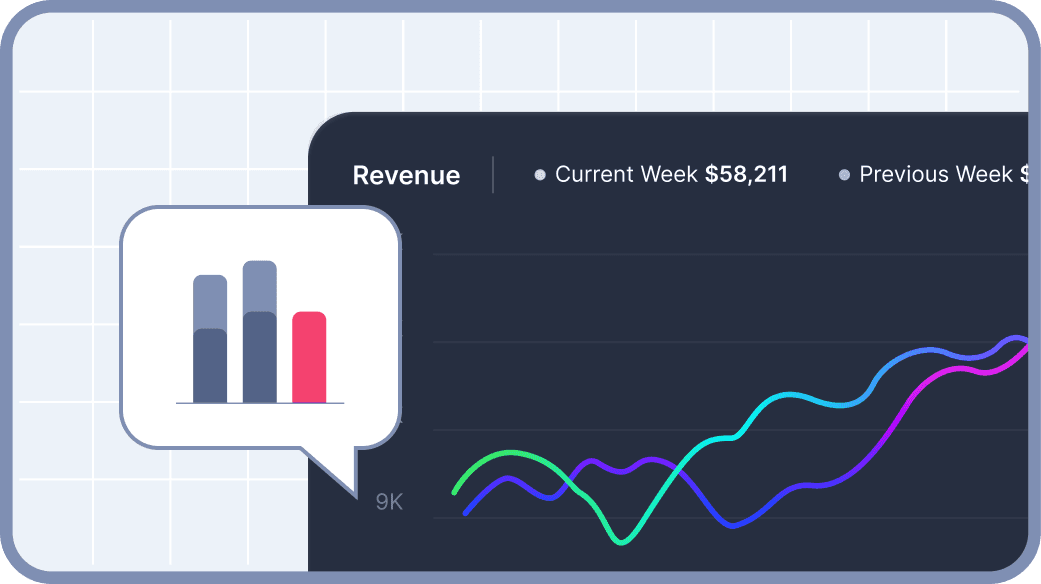ApPello’s Digital Platform is a cloud-native, low-code platform designed for time- and cost-efficient development of applications. At its core, the Platform offers a streamlined development experience, enabling users to create smart applications with minimal manual coding.




Why we created the platform?
The platform is designed to support all our products and serves as the foundation for ApPello’s Digital Lending Solutions, trusted by numerous incumbent banks and fintechs.
We build applications that are highly flexible and user-friendly. With the platform’s powerful flexibility tools, ApPello customers can easily adapt and enhance their solutions to meet unique needs.

Why we created the platform?
The platform is designed to support all our products and serves as the foundation for ApPello’s Digital Lending Solutions, trusted by numerous incumbent banks and fintechs.
We build applications that are highly flexible and user-friendly. With the platform’s powerful flexibility tools, ApPello customers can easily adapt and enhance their solutions to meet unique needs.

Why we created the platform?
The platform is designed to support all our products and serves as the foundation for ApPello’s Digital Lending Solutions, trusted by numerous incumbent banks and fintechs.
We build applications that are highly flexible and user-friendly. With the platform’s powerful flexibility tools, ApPello customers can easily adapt and enhance their solutions to meet unique needs.
Why we created the platform?
The platform is designed to support all our products and serves as the foundation for ApPello’s Digital Lending Solutions, trusted by numerous incumbent banks and fintechs.
We build applications that are highly flexible and user-friendly. With the platform’s powerful flexibility tools, ApPello customers can easily adapt and enhance their solutions to meet unique needs.

Application Design
Application Design
Data modeler
Screen Designer
Workflow Designer
Decision Engine
Interface SDK
AI Engine




What does it bring for you?
What does it bring for you?
Beat competition
Grow digitally and beat your competitors by using a modern event-driven platform with omnichannel capabilities, built on a microservices architecture and extraordinary integration capabilities with a proven track record in many banks.



Have the freedom to create
Unique problems require unique solutions. Live out your creativity and develop the exact solution your organization needs. Scale and adjust it on the go, if the business environment changes.
Enjoy independence
When using the Platform on your own, you have control of all development and usage steps and will not face ineffective vendor lock. Moreover, knowledge about sensitive business flows or data remains in-house.


Keep costs low
Bulid scalable and secure solutions that are easy to integrate to your legacy. Utilize the capabilities of a ready-made platform, take advantage of the new features, upgrades and support.

Basis of
the Platform
Basis of the Platform
Basis of the Platform
Platform Description
Platform Description

Drag-and-drop Screen designer
The platform empowers users to effortlessly create dynamic user interfaces through a drag-and-drop interface builder. This feature allows the seamless design of pages for displaying data, all while incorporating rules that dictate the behavior and appearance of the user interface elements.
The platform toolset’s main advantages are:
Read more

Drag-and-drop Screen designer
The platform empowers users to effortlessly create dynamic user interfaces through a drag-and-drop interface builder. This feature allows the seamless design of pages for displaying data, all while incorporating rules that dictate the behavior and appearance of the user interface elements.
The platform toolset’s main advantages are:
Read more

Drag-and-drop Screen designer
The platform empowers users to effortlessly create dynamic user interfaces through a drag-and-drop interface builder. This feature allows the seamless design of pages for displaying data, all while incorporating rules that dictate the behavior and appearance of the user interface elements.
The platform toolset’s main advantages are:
Read more

Drag-and-drop Screen designer
The platform empowers users to effortlessly create dynamic user interfaces through a drag-and-drop interface builder. This feature allows the seamless design of pages for displaying data, all while incorporating rules that dictate the behavior and appearance of the user interface elements.
The platform toolset’s main advantages are:
Read more

Data modeler
The core of any IT system is a clear and flexible data model, making the intuitive data modeler a key component of the Platform. It empowers users to effortlessly design and tailor their datasets (business entities), forming the foundation of their applications.

Data modeler
The core of any IT system is a clear and flexible data model, making the intuitive data modeler a key component of the Platform. It empowers users to effortlessly design and tailor their datasets (business entities), forming the foundation of their applications.

Data modeler
The core of any IT system is a clear and flexible data model, making the intuitive data modeler a key component of the Platform. It empowers users to effortlessly design and tailor their datasets (business entities), forming the foundation of their applications.

Data modeler
The core of any IT system is a clear and flexible data model, making the intuitive data modeler a key component of the Platform. It empowers users to effortlessly design and tailor their datasets (business entities), forming the foundation of their applications.

Business entities
Business entities are the core building blocks of any system, derived from the data model by leveraging predefined relationships and fields within the Data Modeler. They serve as the foundation for all subsequent configurations, including workflows, operations, screens, and business rules, ensuring a structured and consistent approach to system development.

Business entities
Business entities are the core building blocks of any system, derived from the data model by leveraging predefined relationships and fields within the Data Modeler. They serve as the foundation for all subsequent configurations, including workflows, operations, screens, and business rules, ensuring a structured and consistent approach to system development.

Business entities
Business entities are the core building blocks of any system, derived from the data model by leveraging predefined relationships and fields within the Data Modeler. They serve as the foundation for all subsequent configurations, including workflows, operations, screens, and business rules, ensuring a structured and consistent approach to system development.

Business entities
Business entities are the core building blocks of any system, derived from the data model by leveraging predefined relationships and fields within the Data Modeler. They serve as the foundation for all subsequent configurations, including workflows, operations, screens, and business rules, ensuring a structured and consistent approach to system development.

Operations
Power users can configure a wide range of operations on data, such as calculations, validations, and business logic. This flexibility allows them to implement complex functionalities within applications without the need for extensive coding. Additionally, operations are highly configurable—for instance, users can define which page should be loaded to provide supplementary data required for execution.

Operations
Power users can configure a wide range of operations on data, such as calculations, validations, and business logic. This flexibility allows them to implement complex functionalities within applications without the need for extensive coding. Additionally, operations are highly configurable—for instance, users can define which page should be loaded to provide supplementary data required for execution.

Operations
Power users can configure a wide range of operations on data, such as calculations, validations, and business logic. This flexibility allows them to implement complex functionalities within applications without the need for extensive coding. Additionally, operations are highly configurable—for instance, users can define which page should be loaded to provide supplementary data required for execution.

Operations
Power users can configure a wide range of operations on data, such as calculations, validations, and business logic. This flexibility allows them to implement complex functionalities within applications without the need for extensive coding. Additionally, operations are highly configurable—for instance, users can define which page should be loaded to provide supplementary data required for execution.

Business Rules
The primary goal of configurable rules is to isolate frequently changing business logic from the core source code, in a format that is comprehendible and editable for the Power users. Rulesets of the platform:
Calculations
Decisions
Validations

Flexible scorecard definition
The primary goal of configurable rules is to isolate frequently changing business logic from the core source code, in a format that is comprehendible and editable for the Power users. Rulesets of the platform:
Calculations
Decisions
Validations

Business Rules
The primary goal of configurable rules is to isolate frequently changing business logic from the core source code, in a format that is comprehendible and editable for the Power users. Rulesets of the platform:
Calculations
Decisions
Validations

Business Rules
The primary goal of configurable rules is to isolate frequently changing business logic from the core source code, in a format that is comprehendible and editable for the Power users. Rulesets of the platform:
Calculations
Decisions
Validations

Workflows
The platform is seamlessly integrated with the BPMN-based Camunda workflow engine, empowering users to automate and optimize their business processes within the application. With the built-in visual editor, workflows can be easily created and modified at any time, ensuring that updates take effect immediately for maximum operational efficiency.

Workflows
The platform is seamlessly integrated with the BPMN-based Camunda workflow engine, empowering users to automate and optimize their business processes within the application. With the built-in visual editor, workflows can be easily created and modified at any time, ensuring that updates take effect immediately for maximum operational efficiency.

Workflows
The platform is seamlessly integrated with the BPMN-based Camunda workflow engine, empowering users to automate and optimize their business processes within the application. With the built-in visual editor, workflows can be easily created and modified at any time, ensuring that updates take effect immediately for maximum operational efficiency.

Workflows
The platform is seamlessly integrated with the BPMN-based Camunda workflow engine, empowering users to automate and optimize their business processes within the application. With the built-in visual editor, workflows can be easily created and modified at any time, ensuring that updates take effect immediately for maximum operational efficiency.

Decision Engine (rule engine)
It is designed to efficiently handle business-critical calculations, regardless of complexity.
Key features include:
Flexible Data Integration: Access decision calculations via APIs for seamless integration with external systems.
Calculation Trees and Flows: Perform detailed calculations at each node of the decision tree to ensure precise outcomes.
Scenario Analysis and Simulation: Simulate various scenarios to evaluate their potential impacts and make informed decisions.
Real-Time Testing: Optimize models and calculations with real-time testing capabilities, ensuring the most effective decision-making framework.

Decision Engine (rule engine)
It is designed to efficiently handle business-critical calculations, regardless of complexity.
Key features include:
Flexible Data Integration: Access decision calculations via APIs for seamless integration with external systems.
Calculation Trees and Flows: Perform detailed calculations at each node of the decision tree to ensure precise outcomes.
Scenario Analysis and Simulation: Simulate various scenarios to evaluate their potential impacts and make informed decisions.
Real-Time Testing: Optimize models and calculations with real-time testing capabilities, ensuring the most effective decision-making framework.

Decision Engine (rule engine)
It is designed to efficiently handle business-critical calculations, regardless of complexity.
Key features include:
Flexible Data Integration: Access decision calculations via APIs for seamless integration with external systems.
Calculation Trees and Flows: Perform detailed calculations at each node of the decision tree to ensure precise outcomes.
Scenario Analysis and Simulation: Simulate various scenarios to evaluate their potential impacts and make informed decisions.
Real-Time Testing: Optimize models and calculations with real-time testing capabilities, ensuring the most effective decision-making framework.

Decision Engine (rule engine)
It is designed to efficiently handle business-critical calculations, regardless of complexity.
Key features include:
Flexible Data Integration: Access decision calculations via APIs for seamless integration with external systems.
Calculation Trees and Flows: Perform detailed calculations at each node of the decision tree to ensure precise outcomes.
Scenario Analysis and Simulation: Simulate various scenarios to evaluate their potential impacts and make informed decisions.
Real-Time Testing: Optimize models and calculations with real-time testing capabilities, ensuring the most effective decision-making framework.


Start the journey with us!
Start the journey with us!
We train you what the Platform is capable of and how you can make the most of it, then it is your turn to drive digital transformation, come up with new ideas and realize them rapidly while keeping IT and operational costs low.
We train you what the Platform is capable of and how you can make the most of it, then it is your turn to drive digital transformation, come up with new ideas and realize them rapidly while keeping IT and operational costs low.
Beat your competition and enjoy freedom when modernizing legacy systems and applications.
Beat your competition and enjoy freedom when modernizing legacy systems and applications.
Are you interested?
Want to learn more about how our platform can modernize your bank?
Just schedule a call with one of our experts. We're here to help.
Are you interested?
Want to learn more about how our platform can modernize your bank?
Just schedule a call with one of our experts. We're here to help.
Are you interested?
Want to learn more about how our platform can modernize your bank?
Just schedule a call with one of our experts. We're here to help.
Are you interested?
Want to learn more about how our platform can modernize your bank?
Just schedule a call with one of our experts. We're here to help.
